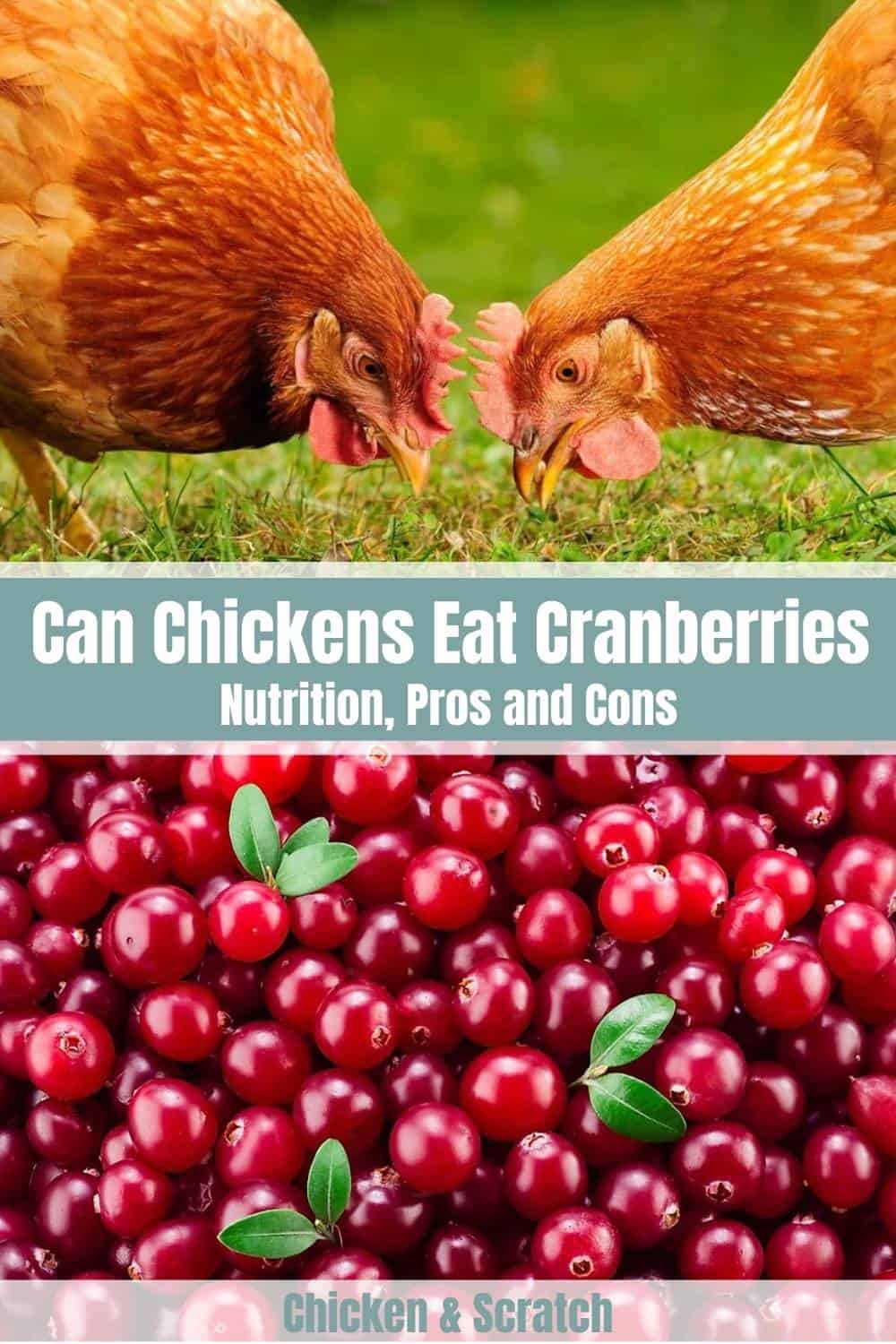Animals love fruits as much as humans do. Cranberries have been a crowd favorite for a long time now. Cranberries are not only flavorful but also provide numerous health benefits. While they offer good effects to human nutrition, some may wonder, can chickens eat cranberries?
This article will cover
- Cranberries and Chickens
- Cranberries and The Good Stuff They Offer Your Chickens
- Feeding Cranberries To Your Chickens
- How Often is Good and When to Take a Break?
- Things to Keep in Mind When Preparing Berries and Other Food
Cranberries and Chickens
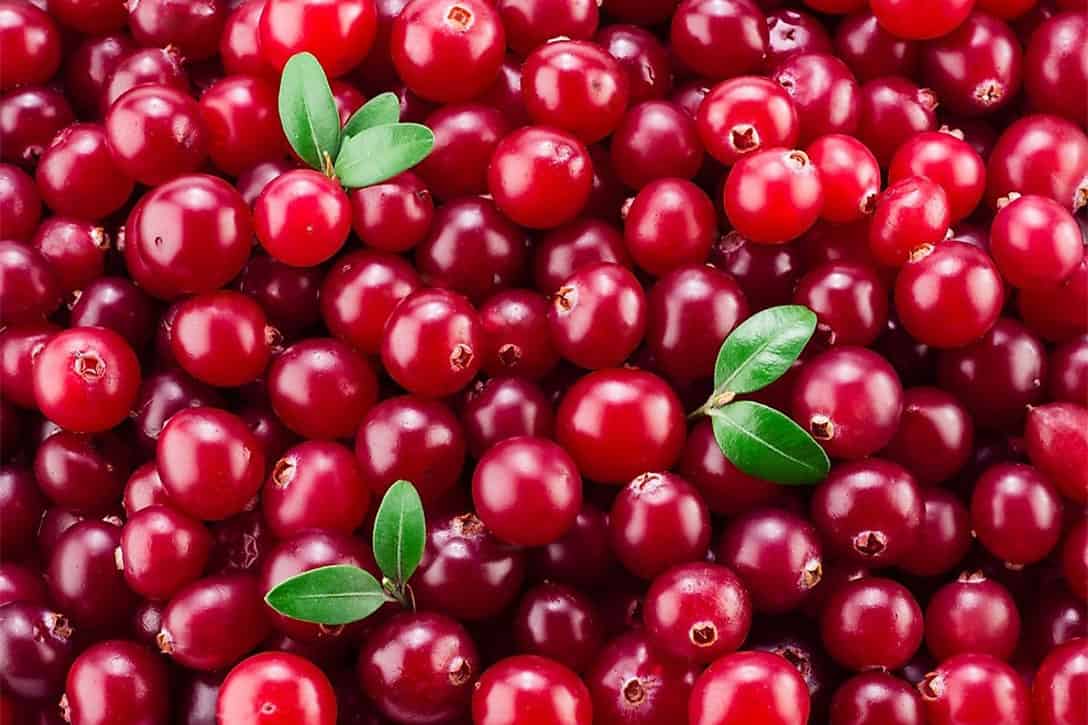
Berries have been popular and nutritious snacks for chickens. These nutritious berries are the perfect snack to munch on. Since cranberries are usually present in every household, it’s much easier for flock owners to feed them to their flocks as snacks.
As cranberries are super good for humans, they are also very good for your chickens! Not only do they provide them with good stuff, but they also taste good.
Whether the cranberries are fresh, dried, or processed, all of these variations are okay for your chickens to eat unless the mixture contains something prohibited for chickens to eat. Like the human population, the majority of chickens who have tried cranberries love them! In fact, your chickens can get a little bit more excited when cranberries are presented in front of them.
Cranberries and The Good Stuff They Offer Your Chickens
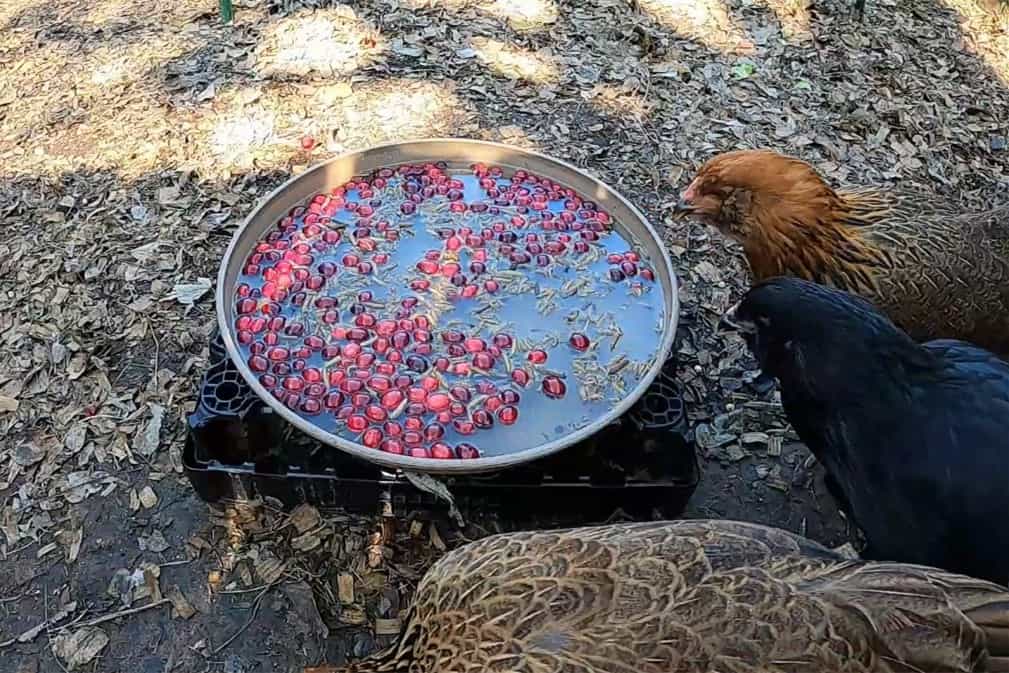
Before feeding anything to your flock, it’s always beneficial to look into the good things for your chickens. This way, you can ensure that your flock only eats and snacks on healthy picks and food that benefits them. Here are some of the good nutrients and benefits your chickens can get from eating cranberries.
- High Fiber Content – Fiber has been an essential part of a chicken’s growth and maintaining healthy digestion. Cranberries help your chickens have a stable and healthy bowel movement and keep your chickens from feeling bloated. Fiber is the agent that keeps your chickens from constipation.
- Low levels of Energy, Sugar, and Fat – In the broader view, having low counts of these elements helps ensure that your flock maintains their healthy and average weight. Other snacks are often the reason for your flocks to be overweight. Good to hear that cranberries are safe but then again, also in moderation.
- Vitamin C and E – Vitamin C has always been good to hear when it comes to nutrition. It helps strengthen the immune system. It also helps your flock keep their head and body cool when it becomes a little bit stressful for them. Vitamin E is one of the rare treasures found in cranberries. Vitamin E helps in the proper growth of your flock and supports the defense system of your chickens’ bodies.
- Rich in Antioxidants – Antioxidants lower the free radicals, which, when uncontrolled and driven to excessive levels, cause chronic diseases for chickens. These diseases that can attack them usually involve their bones or their heart. These antioxidants help in preventing these radicals from destroying the chicken’s health.
- Lowers Urinary Tract Infections (UTI) – Cranberries have been proven helpful in lower urinary tract infections. Thus, helping keep your chickens safe from E.Coli as it has been discovered to have a connection to UTI.
Nutritional Content of 100g Cranberries and Their Benefits to Chickens
| Nutrient Name | Content | Benefits to Chickens |
|---|---|---|
| Energy | 46kcal | Provides energy |
| Protein | 0.4g | Supports growth |
| Total Fat | 0.1g | Supplies fatty acids |
| Carbohydrates | 12.2g | Provides energy |
| Fiber | 4.6g | Aids digestion |
| Sugars | 4g | Provides energy |
| Vitamin C | 13.3mg | Boosts immunity |
| Vitamin E | 1.2mg | Supports skin and feathers |
| Calcium | 8mg | Strengthens bones |
| Iron | 0.2mg | Supports red blood cells |
Feeding Cranberries To Your Chickens
Just as humans have various ways to prepare cranberries, there are multiple methods for chickens as well. Having cranberries in other ways is also exciting for our animal friends. Here are some of the ways you can prepare cranberries and cranberry forms your chickens may like.
Fresh Cranberries
In feeding your flock fresh cranberries, you can scatter some inside their space. You can choose to chop them or not. However, chopping them would be the best way to go as it helps in their convenience and easier digestion as they don’t have teeth to crush their food further.
Chop the cranberries into bite sizes, the size of their feed or smaller. You can place them somewhere where the liquid or the juice isn’t wasted much. Juice provides a lot of nutrients, too, and it’s delicious!
Dried Cranberries
You may wonder if chickens also like dried cranberries. The answer would be yes, but you need to watch out for what type of dried cranberries they are. Of course, processed dried cranberries can contain added sugar and preservatives.
These added elements can lessen or take away the supposedly nutrient-filled snack for your chickens. Thus, it’s beneficial to do away from commercially processed dried cranberries.
It’s best just to buy fresh cranberries and dry them at home. This way, you are assured that the cranberries did not undergo any commercial and unnatural processes. It’s best to keep as much of the nutrients in the fruit as possible.
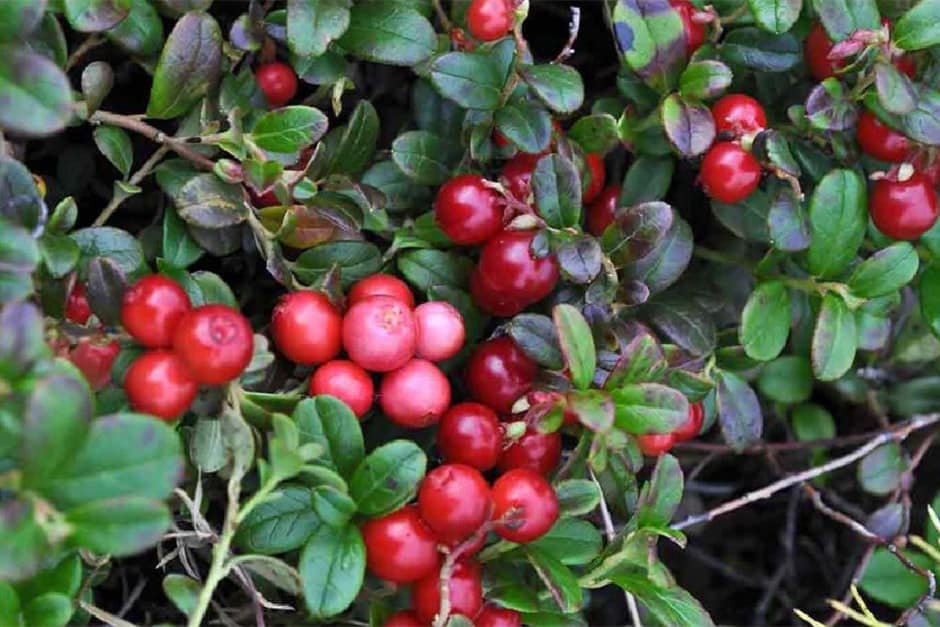
Cooked Cranberries
Cooked cranberries are just almost similar to fresh ones. The only thing that changed here was the texture of your cranberries. Cooked ones are softer. Nevertheless, chopping them is still something you would want to do.
Frozen Fruit Blocks
You can make your own frozen fruit blocks by mixing some good stuff with cranberries. You can mash and mix some cereals, other fruits, oatmeal, etc., and make some frozen blocks.
Mixed
You can also mix some cranberries into your existing feed or find a healthy trail mix in the market. Of course, you can make your mix; make sure the things you put in are suitable for your chickens too!
How Often is Good and When to Take a Break?
Food intake has its limitations. Even the healthiest food out there needs to be taken in moderation, or else it can have a negative effect on your body.
As fruits are not a staple meal for chickens but rather treats, they should be fed to them occasionally and never always. Cranberries are not tailor-made for chickens, and so they do not give everything a chicken needs. In simpler terms, cranberries are not fit and cannot meet a chicken’s dietary requirement.
They need their feed more than cranberries. Too much exposure to cranberries may change their preference! It would be best if you had them to like and eat more of their feed than cranberries. Too much cranberry intake can cause digestive problems for your flocks. The average cranberry intake should be 1-2 cranberries per chicken.
Things to Keep in Mind When Preparing Berries and Other Food
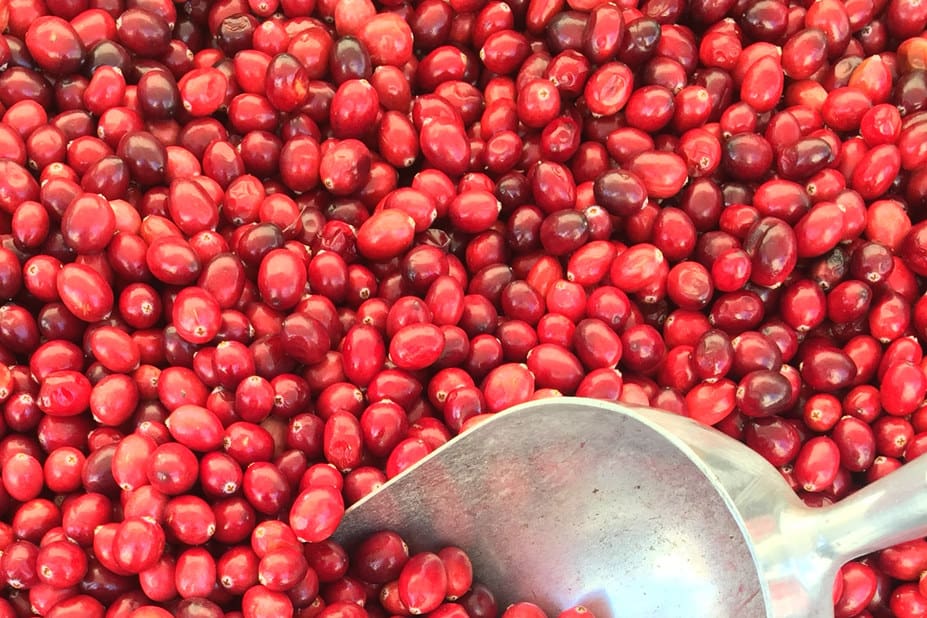
Aside from watching their berry intake and limiting the berries you give them, it’s also good to consider the size of your chicken, including their condition. You need to adjust how much you give them according to their size and their situation. Of course, chickens with smaller body frames need more minor counts of berries. It’s not big of a deal, but it matters.
Another thing to note is the sugar intake of chickens. Fruits are good, but some fruits contain a lot more sugar than others. A chicken’s diet is different from a human so you should detach your diet from your chicken’s.
As chickens can get overweight from too much sugar and fat, it’s best to minimize their intake of fruits with too much sugar in them. It pays for you to limit it. Obviously, chickens just peck and eat whatever you give them and whatever they find edible along with their space.
It’s also important to note that mold is not suitable for your chickens, too, like it is for you. All molds can be potentially harmful to chickens, and it’s challenging to differentiate between them.
To be sure your chicken is eating all the right things, do not give them spoiled food. While overripe and super soft fruit or food is okay, spoiled and moldy ones should be avoided. These things can be toxic for your chickens.
Provide variety for your flock. Although chickens accept whatever you give them on a daily basis, giving them a variety of flavors makes them happy. Also, giving them new healthy things allows them to explore their food palette. This also gives them more nutrients, primarily when some nutrients from fruits, etc., are not found in their feeds.
You may be wondering what time is good to feed fruits to your chickens. Mornings are good times for chickens to eat fruits. During these times, the fruits they eat can be easily digested. Like humans, they also like a good morning supply of fruits in their space. You can also do your research to see what food is good in the morning, afternoon, or at night for your chickens.
Summary
Fruits are helpful for chickens. It provides them with nutrients that may not be found in their regular and daily feeds. Aside from that, they are able to experience new flavors! Finding out whether “Can chickens eat cranberries?” opens your flock to more possibilities and an addition to their list of treats. For example, cranberries!
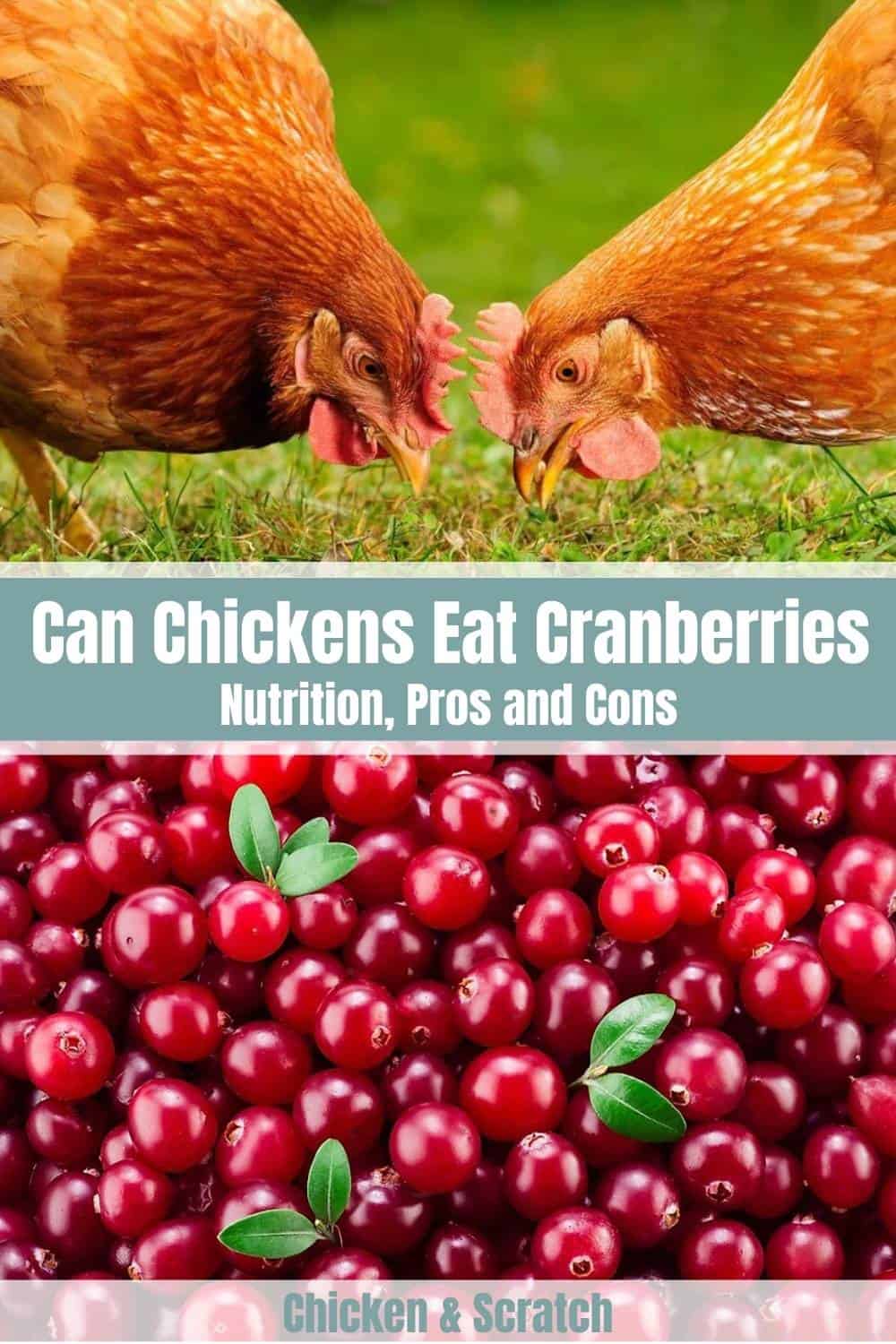

Joseph Hudson has been raising chickens for over 15 years. In 2018, he completed the Agriculture & Natural Resources program at Mt. San Antonio College. He currently raises over 1400 chickens on his 7.5-hectare farm. He keeps sharing his experience on raising healthy and happy chickens on Chicken Scratch The Foundry.
